- News
- Reviews
- Bikes
- Accessories
- Accessories - misc
- Computer mounts
- Bags
- Bar ends
- Bike bags & cases
- Bottle cages
- Bottles
- Cameras
- Car racks
- Child seats
- Computers
- Glasses
- GPS units
- Helmets
- Lights - front
- Lights - rear
- Lights - sets
- Locks
- Mirrors
- Mudguards
- Racks
- Pumps & CO2 inflators
- Puncture kits
- Reflectives
- Smart watches
- Stands and racks
- Trailers
- Clothing
- Components
- Bar tape & grips
- Bottom brackets
- Brake & gear cables
- Brake & STI levers
- Brake pads & spares
- Brakes
- Cassettes & freewheels
- Chains
- Chainsets & chainrings
- Derailleurs - front
- Derailleurs - rear
- Forks
- Gear levers & shifters
- Groupsets
- Handlebars & extensions
- Headsets
- Hubs
- Inner tubes
- Pedals
- Quick releases & skewers
- Saddles
- Seatposts
- Stems
- Wheels
- Tyres
- Health, fitness and nutrition
- Tools and workshop
- Miscellaneous
- Cross country mountain bikes
- Tubeless valves
- Buyers Guides
- Features
- Forum
- Recommends
- Podcast
review
£519.99
VERDICT:
Powerful, easy to see data and great to use, but ouch, that price
Huge number of metrics
Big screen
Great battery life
ClimbPro app is super-useful
Whopping price
Massive bezels still
Phone-based setup please
Weight:
126g
Contact:
At road.cc every product is thoroughly tested for as long as it takes to get a proper insight into how well it works. Our reviewers are experienced cyclists that we trust to be objective. While we strive to ensure that opinions expressed are backed up by facts, reviews are by their nature an informed opinion, not a definitive verdict. We don't intentionally try to break anything (except locks) but we do try to look for weak points in any design. The overall score is not just an average of the other scores: it reflects both a product's function and value – with value determined by how a product compares with items of similar spec, quality, and price.
What the road.cc scores meanGood scores are more common than bad, because fortunately good products are more common than bad.
- Exceptional
- Excellent
- Very Good
- Good
- Quite good
- Average
- Not so good
- Poor
- Bad
- Appalling
The Garmin Edge 1030 Plus offers a silly number of data fields on a device that is very easy easy to use on a daily basis. The battery life is brilliant and I found ClimbPro to be one of the most useful apps I've ever used. But the price is staggering and it really annoys me that such a pricey head unit still features massive bezels.
Mat reviewed the original Edge 1030 a couple of years ago, and what Garmin likes to do with its 'Plus' models is add a few features and generally try to improve things. Here, we've got a very similar form factor to the original, with the only visible change being that the colour has gone from white to black. We still have the large screen that is still very easy to see, so I'll stick with what Garmin has added. I'll run through this in the order of what I found most useful.
Before I go into that, overall I found the Edge 1030 Plus incredibly easy to use. The size makes it easy to see the screen; the touchscreen is far better than Garmins of old, the battery life is great, ClimbPro is genuinely useful, setup is easy and, as ever, there is a crazy number of metrics to train to. But the price is also very high and I'm not overly thrilled by the lack of phone-based customisation, nor the amount of screen space given over to not being screen space.
Long life
First up is battery life. What should be an oh-so-boring feature has genuinely been an exceptional improvement in my experience. I barely needed to charge this, with the Edge 1030 Plus easily lasting a whole week of my general riding with the backlight always on, a range of sensors connected including Di2, power and heart rate as a minimum, my phone providing notifications, and maps running in the background.
Try as I might to drain the battery, I couldn't fully test Garmin's claims that this thing will go for 24hrs on one charge.
App and away
Once I was over the thrill of not spending my time charging the 1030 Plus, the next best thing is ClimbPro. As a rider who likes going uphill, I have been using this app a lot. It has all the data that I need to pace climbs really well and it is displayed in a way that makes it simple to use.
The colour-coded profile of the climb is incredibly useful. At 196bpm when there is sweat in my eyes and my lungs are burning, being able to see easily that the gradient eases from red (steep) to green (not so steep) soon is just the kind of information that I need. The specific percentage gradient isn't important, but for the times when my heart isn't trying to escape my chest, that data is there too.
The top left corner of the screen displays the distance to the summit which I found to be very useful for judging when to open the taps, increasing the pace to 'finale effort'. It can be a bit depressing if you're suffering on a long climb, but for pacing those final few kilometres, it's very useful.
ClimbPro isn't perfect, though. The default setting has a big colour-coded elevation profile in the middle of the screen, with 'distance to go', 'time remaining', 'grade' and 'elevation' as the preset data fields. The only one of those I used was 'distance to go'. 'Time remaining' never seemed to be accurate enough to judge my effort on, but I couldn't swap this out. The remaining two spots are swappable, so I put my three-second power and heart rate in place of the default options. You can pick any metric so there's a bit of customisation available, but overall, it's a super-useful tool for pacing your effort and one that I've found far more useful than Strava Live segments.
Mapping
I've always got on very well with Garmin's mapping, and now the turn guidance can be paused for those times that you want to deviate from your route, to head to the cafe, for example. It's great as it means you don't have those constant 'off-course' beeps annoying you.
Garmin will also pop you back on track should you go wrong. The Edge 1030 Plus displays three options. You can loop back to rejoin the course where you went wrong, join the course further along, or cut across the course. The options are easy to view and then select, and I didn't have any issues with the 1030 Plus sending me down goat tracks.
You also now get worldwide mapping for free. The 1030 Plus now has 32GB of storage, up from 16GB, and it comes loaded with the maps for the region where you bought the device plus one other region – although ours came with Europe mapping plus North America and Africa. To get more regions, you just go to Garmin Connect and they are available for free.
While we're talking about mapping, Trailforks is loaded and is very useful when heading off-road. I only have a cyclo-cross bike for heading off-road, so I don't think I've tested this fully, but I was still able to pick routes based on difficulty. It just means that you take the correct trails, something that can be hard to do when you're unsure of an area.
Training data
Garmin has had its 'Training Load' data for a while now, but this is the first time that I've found it useful as a training metric. The 1030 Plus pulls your training data, including daily stuff from a connected watch, and uses this to give you a suggested daily workout. It is basic stuff – there is no way yet to tell the device itself that you're trying to get to a particular level of fitness – but the basics of training zones and how they should be applied are here. When my Training Load was high, the 1030 Plus would suggest easy days in the lower zones for recovery; when it dipped, the scheduled harder sessions told me that I could do with some threshold work.
Following the device's recommended sessions isn't the best way to improve – you'd want a proper training plan from a coach or other source for that – but it does at least suggest taking it easy when that is needed. Training sessions from an external source can, as before, be loaded onto and followed on the 1030 Plus.
Easy setup
A neat feature, albeit one that you'll only use the first time you boot up the 1030 Plus, is the easy setup. This will give you the option to migrate your data pages from an old Garmin. You can also auto-connect all the sensors that you've used in the last year, making the out-of-the-box experience rather like getting a new phone. That means no more spending an hour setting up the device, you can just go and ride your bike.
One thing that is still badly needed is the ability to customise data screens from the smartphone app. The competition has it, and the fact that Garmin still doesn't feels like a massive oversight.
LiveTrack has been given some updates that will benefit your loved ones more than you, but the functionality now makes it very good to use. Those tracking your ride from home will have your location as before, but they also get your route on the screen. The update is coming to the 530, 830 and original 1030 too.
Big screen
The final change comes at the screen. Garmin has used the screen tech from the 830 and made it bigger. This results in fabulous performance in the rain as well as consistency when wearing gloves. I have experience of the terrible 820 touchscreen and this is far better in terms of ease of use.
That said, why, when the smartphone market has moved away from the giant forehead, chin and edges design to bezel-less screens, does the cycling computer market still give over a huge proportion of the screen to nothing?
Price
Okay, so that is what is new over the Edge 1030. My only real gripe is with the lofty price. You simply can't escape the fact that £520 is good smartphone territory. It's an extra £20 on the original Edge 1030, and very expensive compared with others: the Hammerhead Karoo 2 is £313 (and currently out of stock) and Dave found the original better for mapping, though it was quite bulky, while Wahoo's Elemnt Bolt is still massively popular for the smartphone-based screen customisation and the price of just £184.99.
Garmin's Edge 830 also gets the ClimbPro feature that I've loved using, and it's really hard to see how the price hike from £349.99 to £519.99 is justified. ClimbPro is also on the Edge 530, which is £259.99. If you can survive without the bigger screen size, either of these would be a very good choice.
> Buyer’s Guide: 13 of the best cycling GPS computers
If money is no object, though, then you've got a brilliant device here. It is missing a few features that big rivals have, but the performance day to day makes this a very good option.
Verdict
Powerful, easy to see data and great to use, but ouch, that price
road.cc test report
Make and model: Garmin Edge 1030 Plus
Size tested: 3.5in screen
Tell us what the product is for and who it's aimed at. What do the manufacturers say about it? How does that compare to your own feelings about it?
Garmin says, 'Never stop cycling with the ultimate GPS bike computer. Edge 1030 Plus is ready for any ride, from remote gravel trails to epic climbs.'
Tell us some more about the technical aspects of the product?
Garmin lists:
PHYSICAL DIMENSIONS 58 x 114 x 19 mm
TOUCHSCREEN
COLOUR DISPLAY
DISPLAY SIZE 3.5" (88.9 mm) diagonal
DISPLAY RESOLUTION 282 x 470 pixels
WEIGHT 124 g
BATTERY TYPE Rechargeable lithium-ion
BATTERY LIFE 24 hours
BATTERY SAVE MODE
IN-RIDE POWER COMPATIBLE (GARMIN CHARGE BATTERY PACK)
WATER RATING IPX7
Maps & memory
ABILITY TO ADD MAPS
BASEMAP
STORAGE AND POWER CAPACITY 32 GB internal memory
WAYPOINTS/FAVOURITES/LOCATIONS 200
ROUTES 100 courses
HISTORY Up to 200 hours
Sensors
GPS
GLONASS
GALILEO
BAROMETRIC ALTIMETER
ACCELEROMETER
AMBIENT LIGHT SENSOR
Daily smart features
CONNECTIVITY Bluetooth®, ANT+®
CONNECT IQ™ (DOWNLOADABLE WATCH FACES, DATA FIELDS, WIDGETS AND APPS)
SMART NOTIFICATIONS
TEXT RESPONSE/REJECT PHONE CALL WITH TEXT (ANDROID™ ONLY)
WEATHER
VIRB® CAMERA REMOTE
SMARTPHONE COMPATIBILITY iPhone®, Android™
Safety and Tracking Features
LIVETRACK
GROUP LIVETRACK
RIDER-TO-RIDER MESSAGING
INCIDENT DETECTION
ASSISTANCE
BIKE ALARM
WEATHER ALERTS
INREACH® COMPATIBLE
Activity tracking features
CALORIES BURNED
Training, planning and analysis features
CUSTOMISABLE SCREEN(S)
AUTO PAUSE®
INTERVAL TRAINING
ADVANCED WORKOUTS
DOWNLOADABLE TRAINING PLANS
DAILY WORKOUT SUGGESTIONS
AUTO LAP®
VO2 MAX
TRAINING EFFECT (AEROBIC)
RECOVERY ADVISOR
VIRTUAL PARTNER
RACE AN ACTIVITY
SEGMENTS
AUTO SCROLL
PHYSIO TRUEUP
PHYSIOLOGICAL MEASUREMENTS (MAY REQUIRE USE OF ADDITIONAL ACCESSORIES SUCH AS HEART RATE STRAP AND/OR POWER METER)
Outdoor recreation features
CLIMBPRO™ ASCENT PLANNER
Cycling features
ALERTS (TRIGGERS ALARM WHEN YOU REACH GOALS INCLUDING TIME, DISTANCE, HEART RATE OR CALORIES)
COURSES
ON-DEVICE COURSE CREATOR
GARMIN CYCLE MAP (ROUTABLE CYCLING-SPECIFIC STREET MAP) Yes (multi-region)
CYCLING DYNAMICS COMPATIBLE
MTB DYNAMICS
INTEGRATED TRAILFORKS TRAIL DATA
POWER METER COMPATIBLE
COMPATIBLE WITH VARIA™ RADAR (REAR-FACING RADAR)
COMPATIBLE WITH VARIA™ LIGHTS
Connectivity
EDGE® REMOTE
VARIA™ REMOTE
ANT+™ ELECTRONIC SHIFTING
SHIMANO DI2 SYNCHRO SHIFT INTEGRATION
SMART TRAINER CONTROL
Rate the product for quality of construction:
8/10
Rate the product for performance:
9/10
Rate the product for durability:
7/10
Rate the product for weight (if applicable)
4/10
Rate the product for value:
3/10
Tell us how the product performed overall when used for its designed purpose
Very well. I was able to clearly see data and navigation details, and the fact it rarely needed charging was a bonus.
Tell us what you particularly liked about the product
The battery life is fabulous but ClimbPro is the app for me.
Tell us what you particularly disliked about the product
The price is just a huge jump up from pretty much anything else on the market.
How does the price compare to that of similar products in the market, including ones recently tested on road.cc?
It's an extra £20 on the original Edge 1030 and very expensive compared with others: the Hammerhead Karoo 2 is £313 and Wahoo's Elemnt Bolt is just £185.
Did you enjoy using the product? Yes
Would you consider buying the product? I'd have the 830.
Would you recommend the product to a friend? Yes
Use this box to explain your overall score
Great to use, but lacking some features of rivals, and just look at that price.
About the tester
Age: 24
I usually ride: Cannondale Supersix Di2 My best bike is:
I've been riding for: 5-10 years I ride: Most days I would class myself as: Expert
I regularly do the following types of riding: road racing, time trialling, cyclo cross, commuting, club rides, general fitness riding, I specialise in the Cafe Ride!
Latest Comments
- chrisonabike 3 sec ago
Eh? Where is this Hebdon Bridge you're talking about?
- jayinjapants 1 hour 4 min ago
Mine takes 38s but the clearance on the front derailleur is rather tight.
- jakker 2 hours 56 min ago
Physics, it's how things work.
- Simmo72 7 hours 10 min ago
TNT can sit on my seatpost and swivel. Not giving a penny to the vile bean counters.
- David9694 8 hours 49 min ago
Dawlish driver suffered seizure before smashing into wall...
- C3a 9 hours 26 sec ago
I agree. Off to sign.
- themuffle 9 hours 13 min ago
With both Hunt and Scribe, I really think you'd be mad to get wheels from anybody else.
- Sriracha 9 hours 53 min ago
Weight is a problem when it costs you in energy on the uphill which is lost on the downhill, or lost in braking. But if that energy can be...
- ktache 10 hours 43 min ago
And because they are so likely to flip and are heavier they have to have stronger and wider A pillars which reduces visibility.












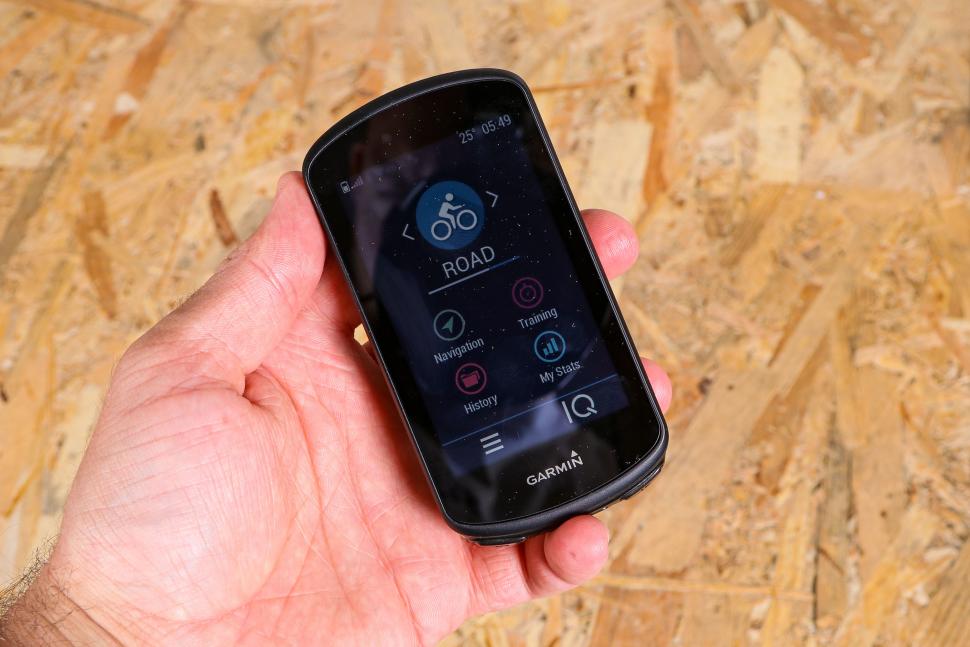
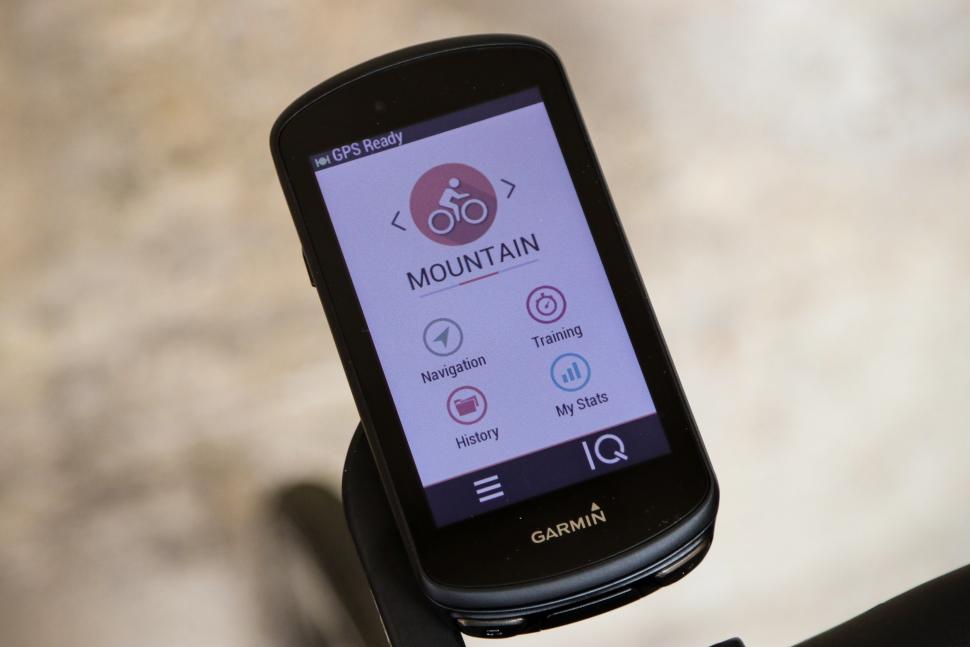
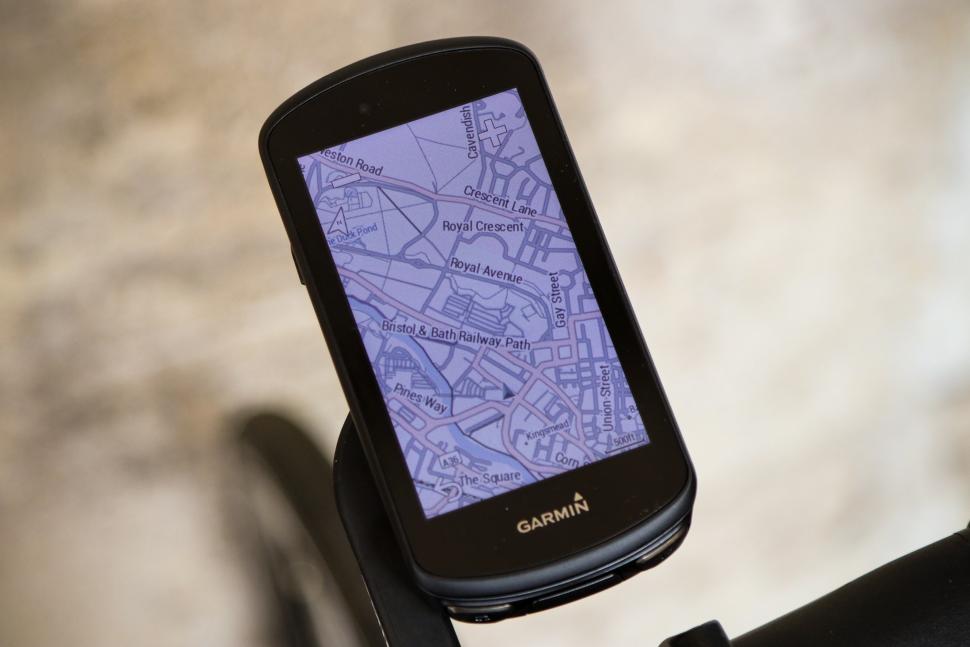
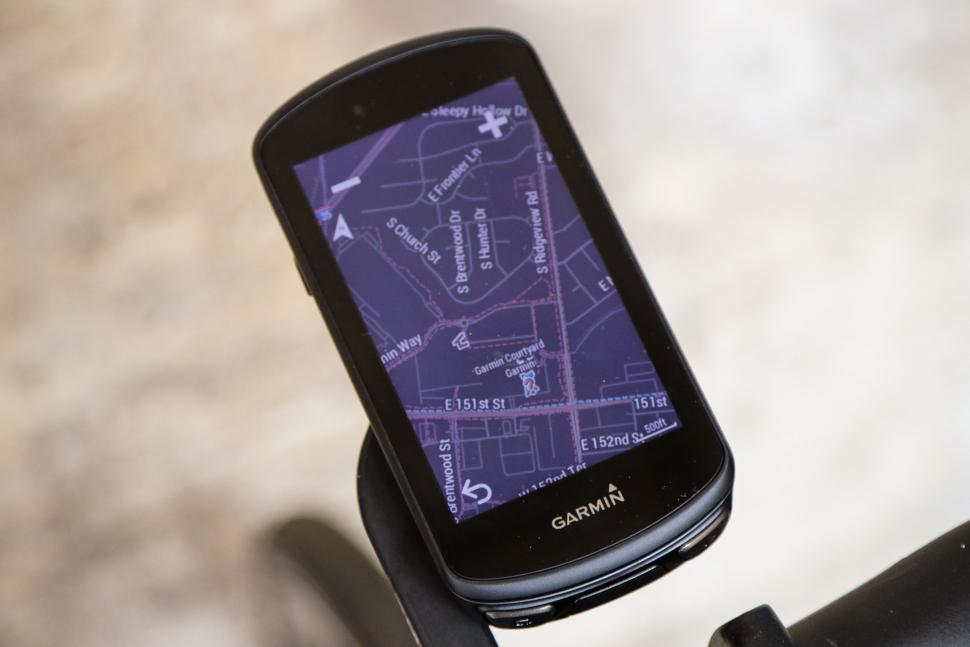
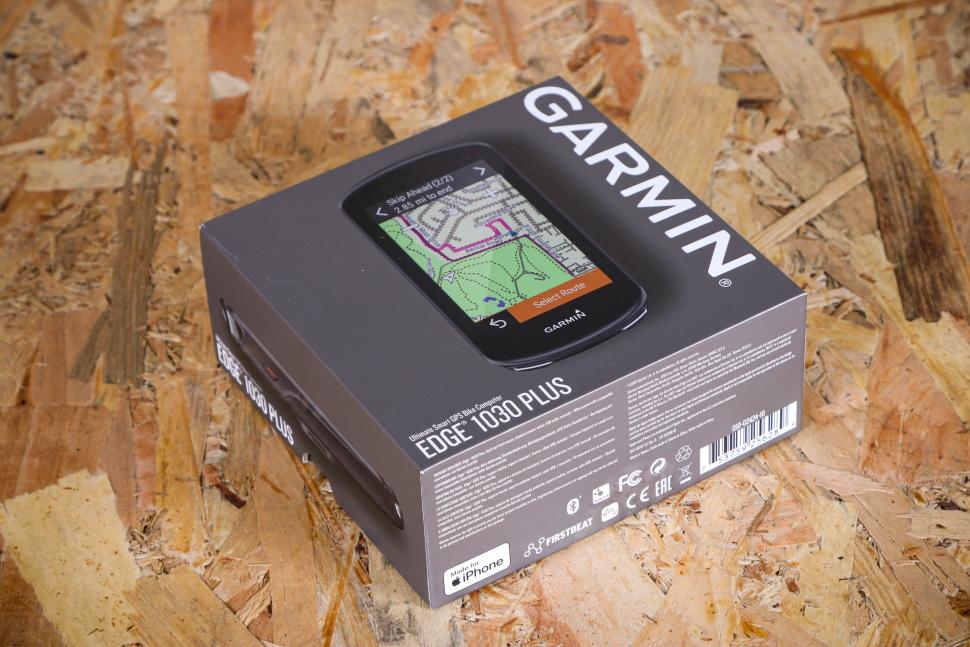
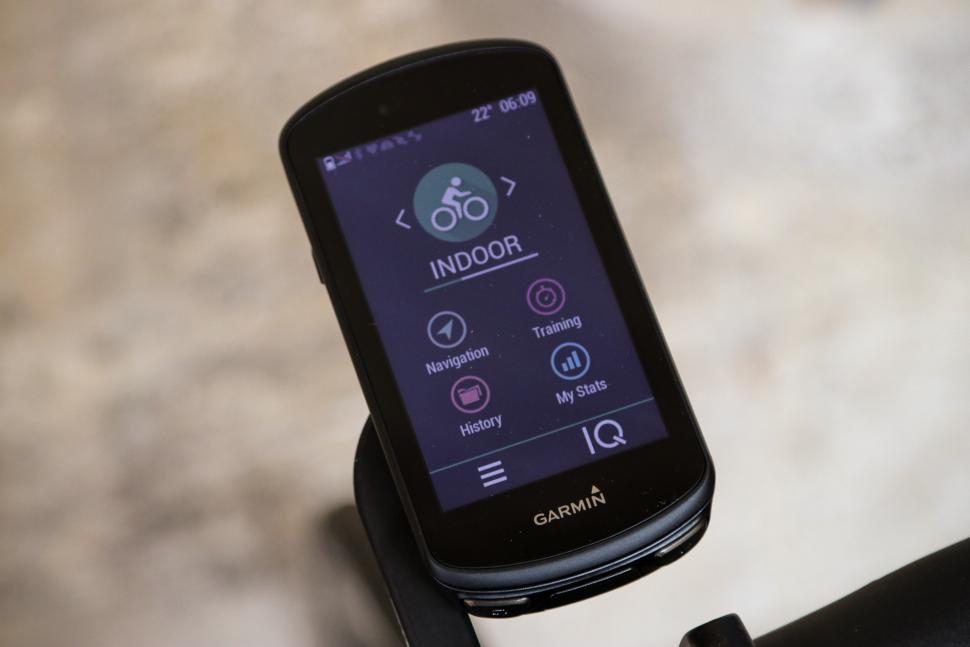
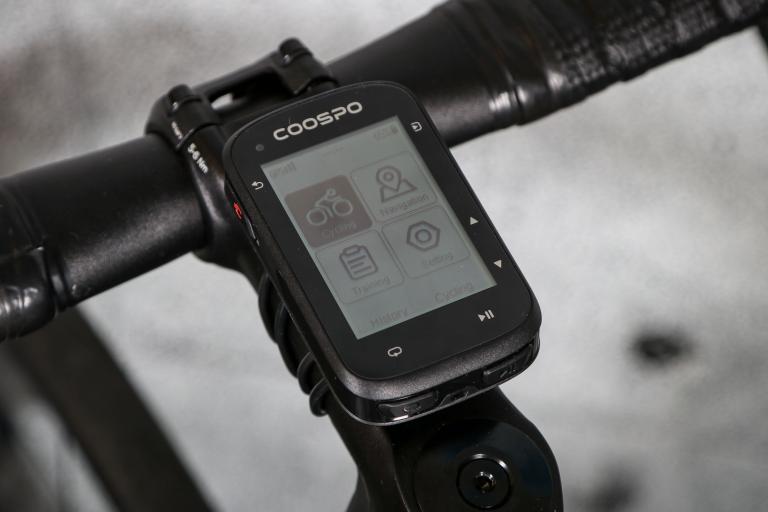
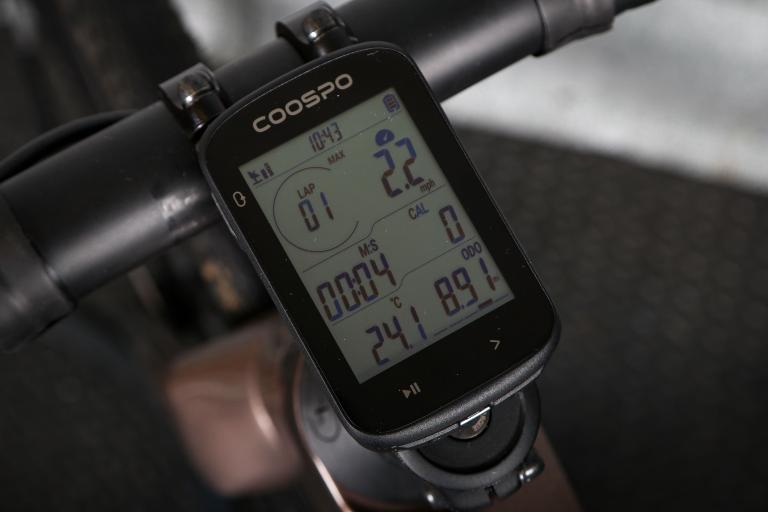
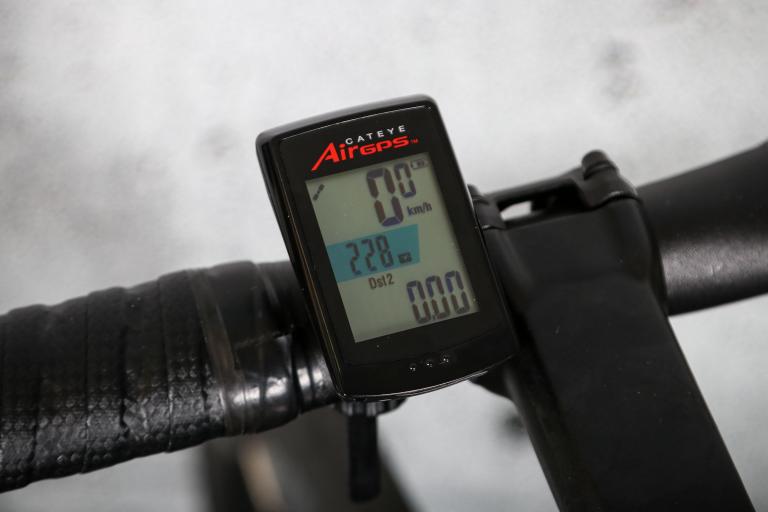

Add new comment
12 comments
I've owned the Garmin 520, Garmin 820, Wahoo BOLT and also the Garmin 1030 Plus, but the 1030 Plus lasted only three weeks and then was returned for a full refund because on two rides it rebooted mid-ride. Reliability is important for me, and even after 50 minutes on the phone with Garmin tech support, sending them 7 MB of files and folders, they could only escalate my issue to engineering. I loved the large screen, turn by turn directions, and long battery life. I replaced the Garmin 1030 Plus with the Wahoo ROAM, so the 2.6" display is smaller, and the price over $100.00 less, but most importantly it just works reliably, no surprises.
Just treated myself to the expensive 1030 Plus having used the Edge 1000 previously. I've not been on the road with it as yet but have been setting it up in preparation. Set up generally easy as all the reviews and blurp state but I had an issue when Garmin Express said there were map updates to install. I tried a few times with the download and install but it failed each time as there seemed to be a lack of space, which I find surprising given the apparent new 32gb availability. Anyways I decided to remove the preloaded USA map as unlikley to be used and then tried to update just the Europe map, which also failed a couple of times and then succeeded on the 3rd attempt. I have no idea why it took a few attempts and I have no idea if I've done right or wrong by removing the US maps.
I have found the Edge 1030 Plus US Cycle Map to be terrible. Much worse than the RideWithGPS OSM Cycle Map. It does not show dirt roads with double dashed lines and shows roads that are blocked off and/or not rideable by a road bike. Garmin’s support staff are terrible and can not even explain the difference between the six types of preloaded maps or agree as to whether I can load City Navigator on the 1030 Plus. The manual is terrible, it does not clearly explain the options.
An interesting review, but reading it I am now convinced that if I replace my (hated) 820 then it's going to be with a Karoo 2. As for my 820, it's going on eBay. It's my third unit with the earlier two having been replaced under warranty. That says two things: customer support is great, but the product isn't. To improve it I have to spend GPB 500 which might be justifiable if you're heavily invested with power meters, etc. but I don't have one. Time to exit the Garmin ecosystem....
Would anyone seriously buy a bike computer at this price? Need their head looking at. Just two of these would buy me a new winter bike.
Yes, but;
a) you'd only buy one
b) why would I want to buy half a bike for you?
You might feel I want my head looking at, and that's fine. I've got one as I wanted one. I can afford it, and I sold my old one so the cost to change was a lot less than the retail cost. Each to their own eh?
Never, ever buy new tech' from Garmin. My experience is that the quality of their product promotion is far superior to the quality of their product. Buy one of these in a year's time when the early adopters have paid for the privilege of being Garmin's R&D team.
I'd guess because you'd then be slapping another couple of hundred quid on the price for the screen tech, and the market won't support a device at that price.
Agree, plus i'm not sure you'd want glass up to the edge of a bike head unit. The smartphone screen point would also have more going for it if the first thing that most people do wasn't to wrap them up in a case....
It already has glass all the way to the edge of the device. It's just that Garmin choose to put black paint under a significant proportion of it , and not active pixels. There is no way that Samsung, Apple, Sony or just about any other device company would release a product at this price point with "bezels" that belong in the last decade. If the active screen went to the edge of the device, you could have the active screen size of the 1030 in an 830 sized device. And let's be very clear - only 61% of the glass area of the 1030 plus is used for displaying information. I've just measured it on mine. On the positive side, my 1030 Plus has been issue free from the moment I took it out of the box. Most unlike Garmin (I've previously had an 800, 1000 and 820 so I know what they're like)!
I just think it looks like tech from 2010 and before. Would be nice to see £500-worth of tech keep up, even if it meant putting it in a case.
I don't get why you would want to re-arrange screens and data fields on a smart phone when the Garmin is so big you can (presumably) easily do it from there. If you can't the review should say so. A better suggestion would be if you can do it from a tablet or PC.
Not sure the smartphone cost comparison is helpful either as you won't get a smartphone that will track your route and provide navigation more more than 5-6 hours, maybe 8 at a push.